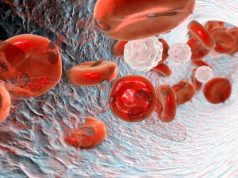Low sperm counts linked to hypogonadism, higher BMI, hypertension, dyslipidemia, metabolic syndrome
MONDAY, March 19, 2018 (HealthDay News) — Low sperm count is associated with poorer measures of cardiometabolic health, according to a study presented at the annual meeting of The Endocrine Society, held from March 17 to 20 in Chicago.
Alberto Ferlin, M.D., Ph.D., from the University of Padova in Italy, and colleagues conducted a prospective cohort study involving 5,177 males from infertile couples. All participants underwent semen analysis, reproductive hormones, testis ultrasound, and biochemical determinations for glucose and lipid metabolism.
The researchers found that the risk of having hypogonadism was increased 12-fold for men with low sperm count (<39 million/ejaculate) (odds ratio, 12.2), with the highest risk for men with total sperm count <10 million, genetic causes, history of cryptorchidism, and idiopathic forms. Higher body mass index, waist circumference, systolic pressure, low-density lipoprotein cholesterol, triglycerides, homeostatic model assessment-index, and lower high-density lipoprotein cholesterol were seen for men with low sperm count, and the prevalence of metabolic syndrome was higher (odds ratio, 1.246). For men with low testosterone, all data were worse, while milder, but significant data were seen for men with isolated elevated luteinizing hormone. Lower total sperm count correlated with poor metabolic parameters. Lower bone mineral density and 51 percent prevalence of osteoporosis/osteopenia were seen for men with hypogonadism.
“Our study clearly shows that low sperm count by itself is associated with metabolic alterations, cardiovascular risk, and low bone mass,” Ferlin said in a statement.
Copyright © 2018 HealthDay. All rights reserved.








